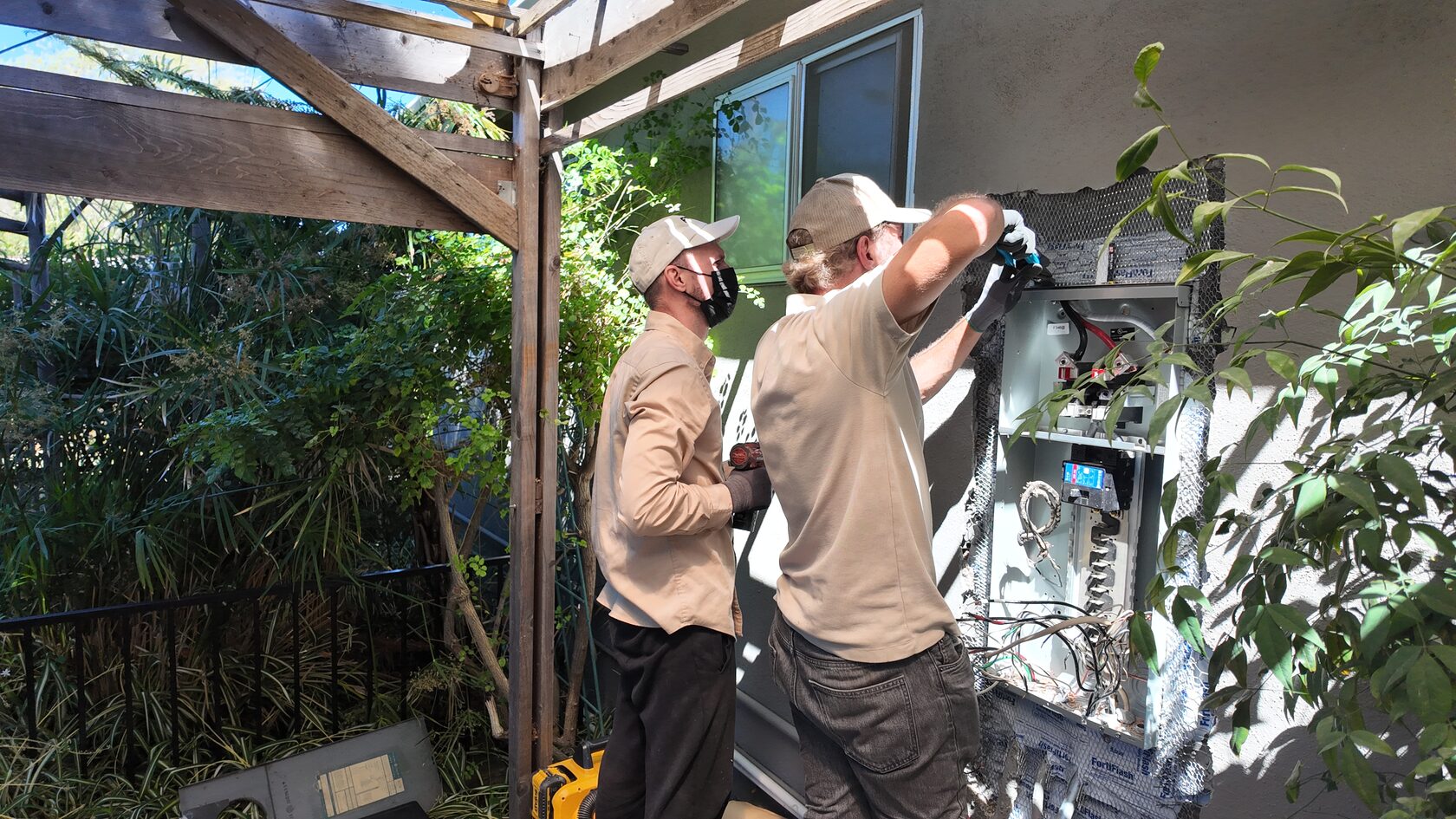Probably, the first time you saw your electrical panel you noticed those odd breakers. Now you know that they are a crucial part of your home safety. Choosing the right electrical breaker types can improve this safety significantly. Today we are going to tell you the difference between these types and when you need one or another.
What Are Electrical Breakers?
Electrical breakers aka circuit breakers cut off the electricity when short circuits and overloads happen and protect your electrical system. They cut off the current flow when something goes wrong and prevent possible fire hazards and malfunctions. So understanding electrical breaker types will help you to achieve the maximum of safety by applying the right ones to the circuits according to their parameters.
Why Are Circuit Breakers Important?
Circuit breakers prevent overheating, electrical fires, and equipment damage and it’s all about your home's safety. Your appliances and wiring will be protected from any electrical faults with right breakers implied into your electric circuit. A properly chosen electric circuit breaker ensures that the electrical system can handle the load and prevent critical malfunctions.
Key Electrical Breaker Types
Standard Circuit Breakers
This type is called like that since they are most popular in all homes. Standard circuit breakers are made to protect your house from overloads and short circuits and to keep your electrical system operating safely. There are two variations of them:
- Single-pole breakers: Provide 120 volts and protect only one circuit.
- Double-pole breakers: Take care of two circuits and deliver 240 volts.
Miniature Circuit Breaker (MCB)
These are better versions of the previous one—smaller and more modern. MCBs are more precise in protecting the electrical system from overloads and short circuits that’s why they are ideal for residential and commercial applications.
Features:
- Compact size
- High-speed tripping mechanism
- Better longevity compared to standard breakers
Arc Fault Circuit Interrupters (AFCIs)
AFCIs are advanced breakers that detect and interrupt dangerous arc faults, which could lead to fires. They are essential for modern homes, especially in bedrooms and living areas.

Benefits:
- Enhanced fire safety
- Compliance with updated electrical codes
- Suitable for older homes with outdated wiring
Ground Fault Circuit Interrupters (GFCIs)
GFCIs protect against electrical shocks in wet or damp areas like bathrooms, kitchens, and outdoor spaces. These breakers cut off the current at the moment they detect ground faults.
Applications:
- Bathrooms
- Outdoor outlets
- Kitchen countertops
Combination AFCI Circuit Breakers (CAFCIs)
CAFCIs combine the functions of standard AFCIs and GFCIs, offering protection against both arc faults and ground faults. This dual protection makes them a popular choice for new constructions.
Vacuum Circuit Breakers
Vacuum circuit breakers are commonly used in industrial settings, thanks to their ability to handle high voltages. They use a vacuum to cut off the electricity immediately.
Advantages:
- High durability
- Minimal maintenance
- Ideal for heavy-duty applications
How to Choose the Right Electrical Circuit Breaker Types
Selecting the best breaker depends on factors like the load capacity, application, and safety requirements. Follow these tips to choose wisely:
- Assess your home’s power needs. Install only those breakers that match the load requirements of your appliances.
- Consider the environment. Use GFCIs in wet areas and AFCIs in bedrooms and living spaces.
- Seek professional advice. Consult a licensed electrician for expert service.
FAQs
Can I install a circuit breaker myself?
It's recommended to hire a licensed electrician for circuit breaker installation to ensure safety and compliance with electrical codes. Contact us via (669) 666-9219 or support@fuseservice.com to schedule a meeting with a qualified electrician who can do all the job.
Are CAFCIs better than standard AFCIs?
Yes, CAFCIs offer dual protection against arc faults and ground faults, making them more versatile for residential use.
When does my breaker need replacing?
Signs like frequent tripping, visible damage, or a burning smell indicate it may be time to replace your breaker.
Are vacuum circuit breakers used in homes?
No, vacuum circuit breakers are typically used in industrial and high-voltage applications, not residential settings.
What if I use the wrong breaker type?
Using an incorrect breaker can lead to electrical faults, equipment damage, or even fires, so always choose the right one for your application.
Conclusion
Understanding the various electrical breaker types is crucial for maintaining a safe and efficient electrical system in your home. Whether you choose a standard breaker, an AFCI, or a GFCI, make sure it meets your specific needs and complies with safety standards. Call us at (669) 666-9219 or email support@fuseservice.com to consult a professional to ensure proper installation and performance.
